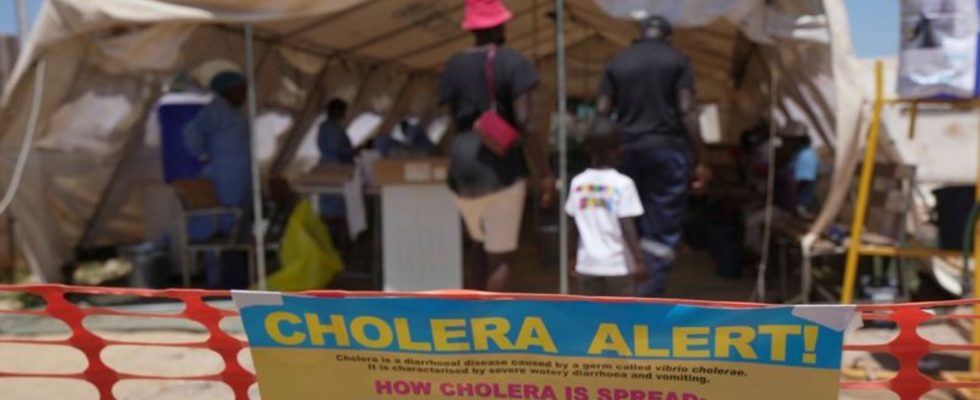UNICEF
Worrying cholera outbreak in southern Africa
The epidemic is putting a strain on the health systems of the affected countries and highlights the weaknesses of the hygiene infrastructure, according to Unicef. photo
© Tsvangirayi Mukwazhi/AP/dpa
The UN children’s fund Unicef warns of the long-term consequences of a cholera epidemic in southern Africa. So far there have been around 3,000 deaths. There is no all-clear in sight.
The situation is particularly difficult in Zambia, where nine of the ten provinces are affected by the cholera outbreak. More than half of the patients are children under 15 years old. The country has just received 1.4 million doses of oral vaccine against the life-threatening disease. In Zimbabwe, there are cases in all provinces of the country, according to Unicef.
The epidemic is putting a strain on the health systems of the affected countries and highlights the weaknesses of the hygiene infrastructure, said Kadilli. Cholera is caused by a bacterium and is mainly spread by contaminated drinking water. Heavy rainfall, triggered by the El Nino weather phenomenon, has worsened the drinking water situation in several countries in the region in recent months.
The effects of the epidemic on children do not only affect their health, said Kadilli, referring to the situation in schools. “Learning loss is a matter of great concern.” In Zambia, for example, schools will remain closed after the Christmas holidays until January 29th to avoid the risk of infection. Protection of children from infectious diseases in schools must be improved, said Kadilli.
Cholera is caused by the bacterium Vibrio cholerae, which produces a poison in the intestines. Drinking water that is contaminated with feces or vomit from sick people, as well as contaminated food, contributes primarily to the spread. Many infections have no symptoms. But in severe cases, the severe loss of fluid and salt can lead to circulatory collapse, muscle cramps and even shock and death within hours.

